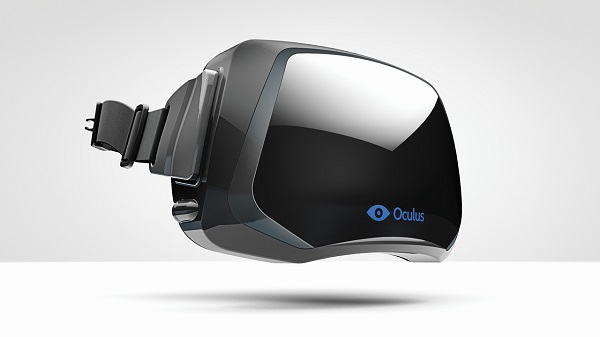Oculus Rift makers, Oculus VR, have just been bought by Facebook for $2 billion and now ZeniMax say that Oculus have stolen some of their VR-related code.
Well this is a sticky situation like a 10-ton coating of treacle on a quicksand pit the size of Texas. The furore over Oculus Rift maker Oculus VR’s sale to Facebook for $2 billion may have somewhat dissipated but ZeniMax are dragging them right back into the headlines with new claims that ex-ZeniMax employee, John Carmack, high-tailed it to Oculus VR with a bunch of stolen code after being enticed to the other company with a job offer and a bagload of Facebook money. According to ZeniMax, Carmack had been working on said stolen technology know-how for years, all during his tenure at the company, with ZeniMax and he being on the terms that he wouldn’t do something like…run off with the code he was working on. They’re also saying that another leading Oculus VR man, Palmer Luckey, had a written agreement with ZeniMax about some Oculus Rift related code (that’s somehow unrelated to whatever code Carmack put together) thus solidifying their legal grounds. It’s all a bit confusing and it’s resulted in the even more complicated outcome of a whopping great lawsuit so you can read about that (as well as ZeniMax and Oculus VR’s official statement) below.
“ZeniMax confirms it recently sent formal notice of its legal rights to Oculus concerning its ownership of key technology used by Oculus to develop and market the Oculus Rift. ZeniMax’s technology may not be licensed, transferred or sold without ZeniMax Media’s approval. ZeniMax’s intellectual property rights arise by reason of extensive VR research and development works done over a number of years by John Carmack while a ZeniMax employee, and others. ZeniMax provided necessary VR technology and other valuable assistance to Palmer Luckey and other Oculus employees in 2012 and 2013 to make the Oculus Rift a viable VR product, superior to other VR market offerings.”
While it’s easy to just say ‘them’s some made up fighting words’, the rest of ZeniMax’s statement also explains that “well before the Facebook transaction was announced, Mr. Luckey acknowledged in writing ZeniMax’s legal ownership of this intellectual property” which means that the ground that Facebook and Oculus VR are standing on to deliver their rebuttal (which you can read below) is more than a little shaky.
So what do Oculus VR have to say about this? As of yesterday, here are the highlights from their statement,
Zenimax has misstated the purposes and language of the Zenimax non-disclosure agreement that Palmer Luckey signed. A key reason that John permanently left Zenimax in August of 2013 was that Zenimax prevented John from working on VR, and stopped investing in VR games across the company. Zenimax canceled VR support for Doom 3 BFG when Oculus refused Zenimax’s demands for a non-dilutable equity stake in Oculus.
Those quotes, along with additional lines that say “we are disappointed but not surprised by Zenimax’s actions and we will prove that all of its claims are false” and “despite the fact that the full source code for the Oculus SDK is available online (developer.oculusvr.com), Zenimax has never identified any ‘stolen’ code or technology” are effectively a middle finger to ZeniMax albeit with much more legal speak.
It’s unlikely that ZeniMax would challenge Oculus and their team of Facebook lawyers without a real case and Oculus et. al seem to want to fight back so this one will probably go to court. We’ll keep you posted once we know more.
Source: Rock, Paper, Shotgun
Be social! Follow Walyou on Facebook and Twitter, and read more related stories New Oculus Rift Prototype Coming Out Soon, What Oculus VR’s Sale to Facebook Means for the Tech Industry











